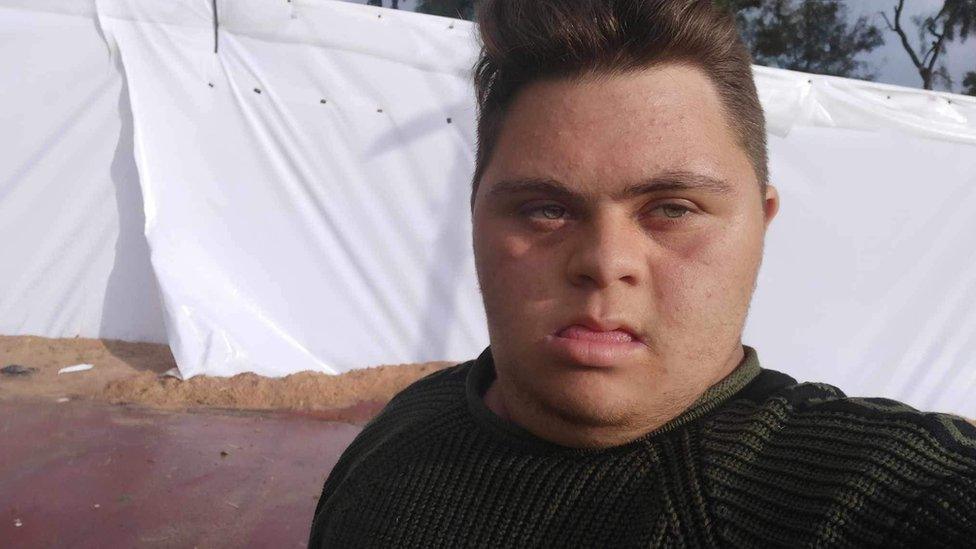Gaza family win visa legal battle with Home Office
- Published
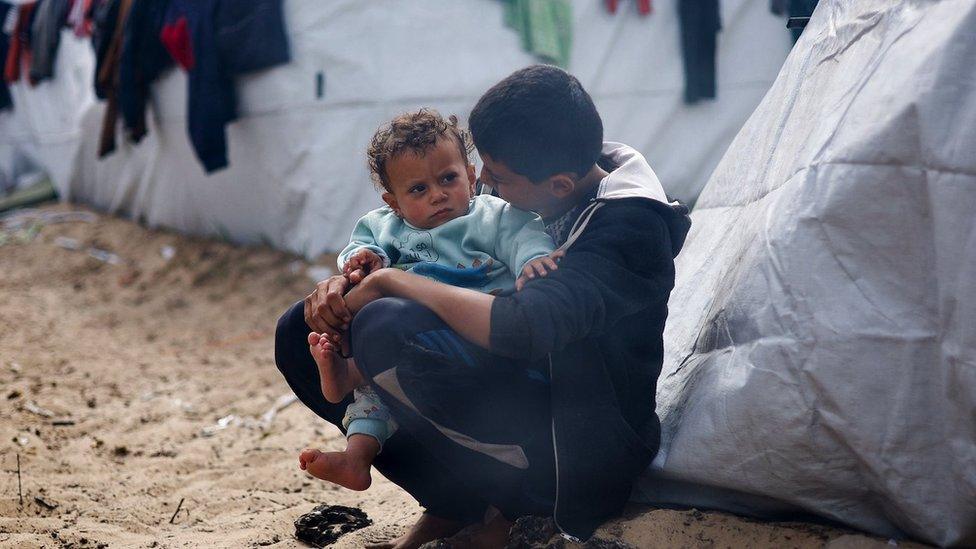
Two of the man's children, not pictured, caught hepatitis A in Gaza
A Palestinian refugee has won a legal challenge against a Home Office refusal to allow his family in Gaza to apply for UK visas without fingerprints.
The man took action after officials rejected his request for his wife and children to be exempt from the usual rules because of the situation in Gaza.
He said this was in effect a refusal to allow his family to join him, because they had no way to submit fingerprints.
A court says the Home Office must allow the family to apply without biometrics.
The Home Office told BBC News: "We have complied with the outcome of judicial review proceedings and it would be inappropriate to comment further."
A court anonymity order means the man and his family cannot be identified, for their own protection.
He had brought a judicial review against the Home Office, which is a type of legal action where a person can challenge the decision of a public body.
The judgement from the Upper Tribunal Immigration and Asylum Court, seen by BBC News, said the Home Office's refusal to exempt the family from giving fingerprints was "disproportionate" given their "particular circumstances".
It said the decision was also in breach of Article 8 of the European Convention on Human Rights - the right to respect for private and family life.
'I am scared'
The man applied for asylum in the UK in 2021 and was granted it in 2023, after the war in Gaza had started.
Once people have refugee status, they can apply for family-reunion visas for their family members to join them in the UK without them needing to go through the asylum system as well.
Asylum Aid solicitor Anastasia Solopova, who is representing the family, said they had applied for these in December.
In most circumstances, when someone applies for a long-term British visa outside of the UK, they need to give their biometrics - fingerprints and a photograph - at a visa-application centre (VAC), for security reasons.
As there is currently no functioning visa centre in Gaza, there was now no way for the family to submit their biometrics, Ms Solopova said.
In a statement to the court, the refugee said the decision from the Home Office had made him feel "like I wanted to die".
Two of his children had caught hepatitis A, which the World Health Organization (WHO) says is spreading in Gaza, external.
"I want so badly to be with my wife to help her," he said. "I am scared, I am fearing for the lives of my family and my children, I am worried that they might die."
Even before the current conflict, it was not easy for Palestinians to leave Gaza via the Rafah crossing into Egypt.
They had to register with the local Palestinian authorities two to four weeks in advance and may then have been rejected by either the Palestinian or Egyptian authorities with little warning or explanation.
And since the current war began, Egypt has said it is reluctant to allow an influx of refugees from Gaza.
In November, the Home Office said it was working with the Foreign Office to help British people and their non-British family members evacuate Gaza through the crossing.
And at the time, a team of Home Office staff was helping visa applicants in Egypt.
People now able to leave Gaza through the crossing can receive medical, consular and administrative support from British embassy staff in Cairo.
- Published23 February 2024
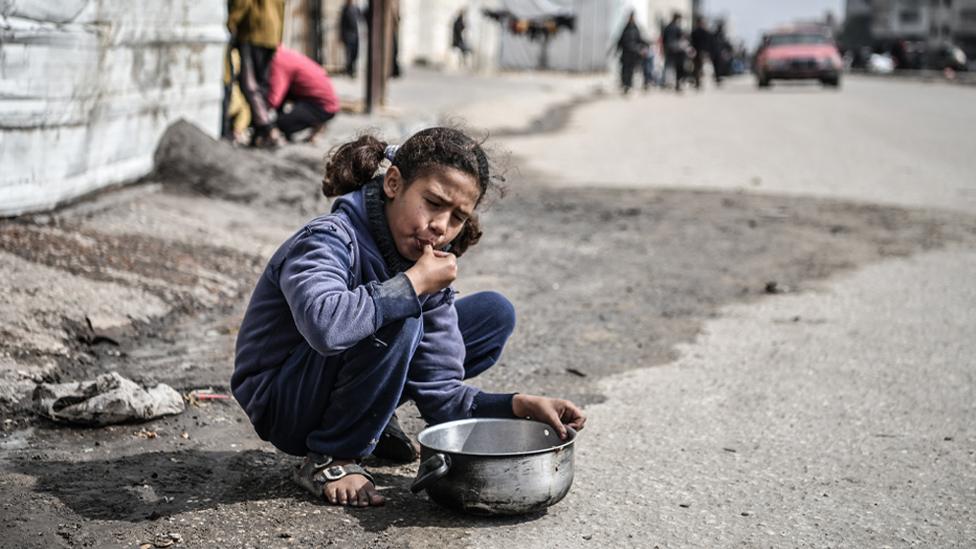
- Published31 October 2023
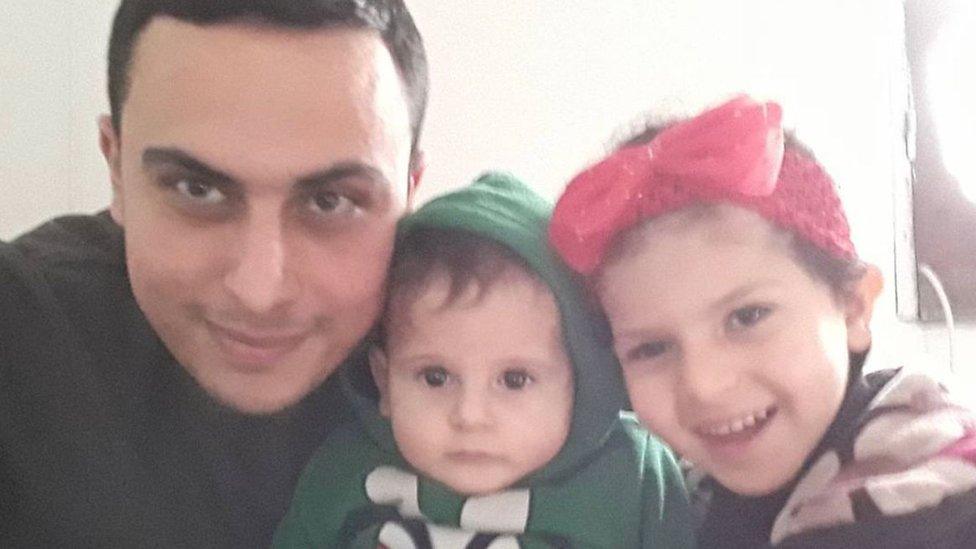
- Published15 December 2023
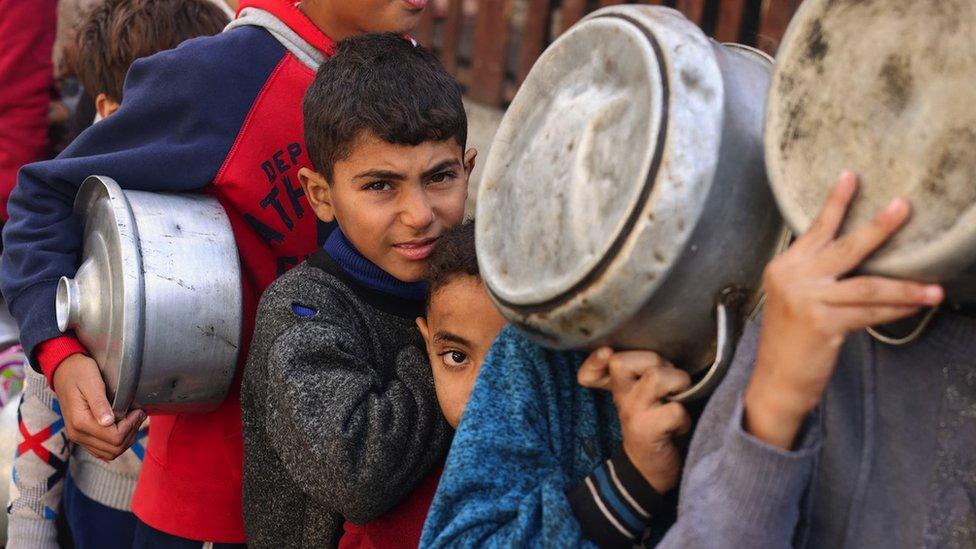
- Published3 March 2024
